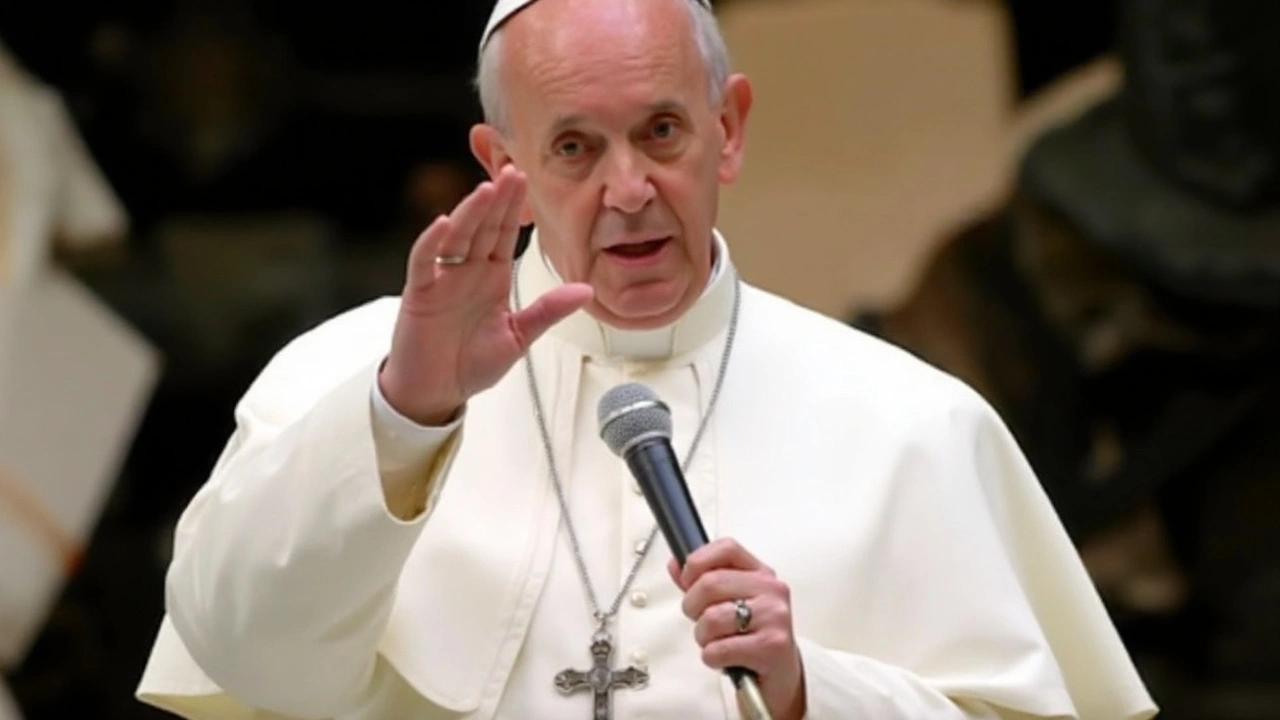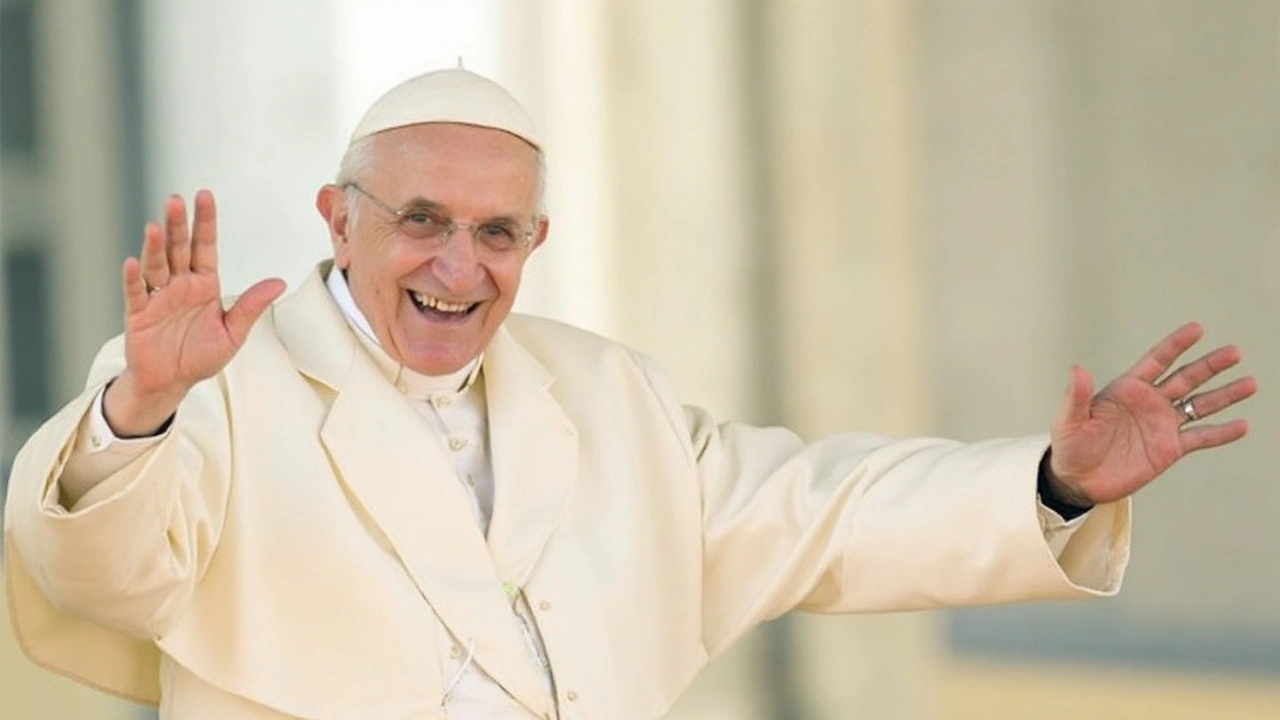The Enduring Influence of Pope Benedict XVI
If you stroll through Vatican City these days, you can still feel the echoes of Pope Benedict XVI—a teacher who left a mark not just on Catholic doctrine, but on millions who looked to him for spiritual clarity. A year after his death on December 31, 2022, reflections about his role as a witness of faith haven’t faded, and anniversaries have a funny way of making memories sharper, not dimmer.
It wasn’t just the scale of the mourning that stood out when Benedict passed at the age of 95, though 195,000 people filing past his body in St. Peter’s Basilica wasn’t exactly forgettable. The true weight came from what he represented—a period in Church history where, for the first time in centuries, both the sitting Pope and his retired predecessor were living side by side inside Vatican walls. Benedict’s resignation in 2013 had already rewritten the playbook for papal tradition, and his quiet years of retirement made headlines simply because he’d broken with precedent so gracefully.
The day of his funeral, January 5, 2023, saw 50,000 people crowding St. Peter’s Square. Seeing Pope Francis preside over the funeral of his predecessor was surreal—a living bridge between two papacies. You could feel the world’s Catholics reckoning not just with the loss of a man, but the closing of a remarkable chapter. It was history in real time, touching everyone from cardinals in crimson robes to pilgrims with smartphone cameras.

Benedict’s Legacy: Scholar, Pastor, and Gentle Reformer
Those closest to Benedict always pointed to his extraordinary intellect and his unwavering love of Christ—a theme that took center stage at the Vatican’s Campo Santo Teutonico conference in January 2024. This wasn't one of those stiff academic gatherings; it buzzed with scholars sharing personal memories and wrestling with the depth of his work. You heard stories of a man never shaken in his convictions, but always attentive, never just seeking to win an argument, but to lift the conversation about faith and reason.
Participants included former colleagues, theologians, and priests who had worked alongside him. They didn’t just trade footnotes—they painted a picture of a leader willing to wrestle with complex questions facing the Church. Whether talking about Europe’s shifting religious landscape, the Church’s internal struggles, or the classic debates over doctrine, those at the conference agreed: Benedict’s influence didn’t end with his papacy. His books, encyclicals, and quiet example continue to challenge and inspire both clergy and laypeople who want to see faith lived out with courage and nuance.
Benedict’s role as a theological legacy builder is pretty concrete, especially for those who’ve dipped into volumes like his "Jesus of Nazareth" trilogy or engaged with his strict yet loving emphasis on the continuity of Catholic tradition. He constantly sought to steer the Church away from being swept up by fleeting trends, pushing instead for a return to core Christian truths—a message that continues to resonate today.
The anniversary didn’t just bring warm words and ceremonial gestures. It reignited questions about how the Church adapts, stays true to its roots, and engages a fast-changing world. Benedict XVI may no longer be physically present in the Vatican, but his voice—measured, gentle, steadfast—still echoes in the debates, prayers, and daily rhythms of Catholic life worldwide.


Comments (15)
The Vatican loves to hide its true agenda behind incense and solemn hymns. They think we won’t see the strings they pull, but the truth leaks like a busted pipe. Benedict’s quiet exit was a perfect distraction while the real power games roared on. It’s time we stop buying the holy smoke.
Contemplating Benedict’s legacy invites us to reflect on the tension between tradition and modernity. One might argue that his scholarly rigor served as a bridge, linking centuries‑old doctrine with contemporary challenges. Yet the reality is more nuanced; the Church’s evolution cannot be reduced to a single pontiff’s influence. In the end, his writings provoke a dialogue that transcends any temporal boundary, urging believers to engage both heart and mind.
His books still get a lot of readers.
Hey folks, love seeing all the respect for Benedict – he really set a solid example for thoughtful faith, and that’s something we can all learn from.
The commemoration underscores the enduring intellectual contribution of Pope Benedict XVI to Catholic theology. His emphasis on continuity offers a measured response to the rapid cultural shifts confronting the Church today. Such a perspective merits continued scholarly examination.
Benedict’s unwavering stand on doctrine proves that true faith isn’t a fashion trend for the masses to follow. Anything less is a betrayal of the very foundations that built our civilization, and we must call out the soft‑selling of watered‑down beliefs.
From a strategic perspective, Benedict’s papacy can be modeled as a high‑impact knowledge‑transfer node within the ecclesiastical network, leveraging synergies between doctrinal fidelity and epistemic robustness. His magisterial output generated a sustained value‑creation stream, fostering both doctrinal cohesion and intellectual capital accumulation across the global Catholic ecosystem.
The anniversary of Pope Benedict XVI’s passing invites a deep look at his scholarly legacy.
He spent decades immersed in the study of Christology and liturgical history.
His writings on the incarnation continue to shape theological curricula worldwide.
Many professors cite his “Jesus of Nazareth” series as a cornerstone in seminary education.
The Vatican’s decision to keep him close after his resignation was unprecedented.
It created a living dialogue between two pontiffs that few imagined possible.
This unique situation offered a tangible example of humility in power.
Benedict’s gentle reformist approach resonated with believers seeking stability.
He consistently warned against the erosion of tradition by fleeting cultural trends.
Yet he also encouraged honest engagement with modern intellectual challenges.
The balance he sought is evident in his emphasis on reason and faith working together.
Across continents, parishes have organized reading groups to explore his encyclicals.
Such grassroots initiatives demonstrate how his ideas permeate everyday worship.
The ongoing conferences and scholarly panels keep his spirit alive in academic circles.
In sum his influence remains a steady beacon for those navigating the complexities of contemporary Catholic life.
Wow, what a powerful tribute to a truly remarkable Pope! I love how the community is still buzzing with discussions about his teachings. It feels like his voice is still echoing through every corner of the Church.
Benedict’s theological contributions, especially on the relationship between faith and reason, remain a valuable resource for scholars and laypeople alike.
Our nation’s moral backbone depends on leaders like Benedict who refuse to bow to secular pressure and uphold timeless truths.
His calm demeanor was a soothing balm in turbulent times 😊. We all miss that steady lighthouse 🌟.
Exactly, his presence offered clarity and comfort during uncertainty 😌. It’s a legacy worth cherishing.
That’s a solid point – balancing tradition with modern challenges isn’t easy, but Benedict gave us a thoughtful roadmap.
Interesting take on his influence on the church’s knowledge network but I wonder how it translates to everyday parish life definatly more research needed